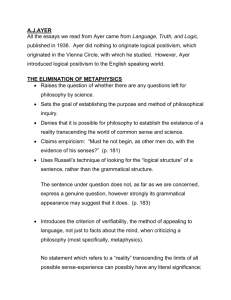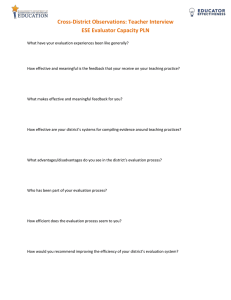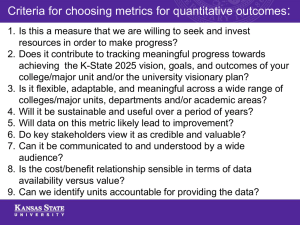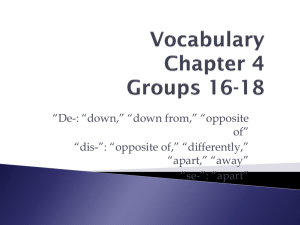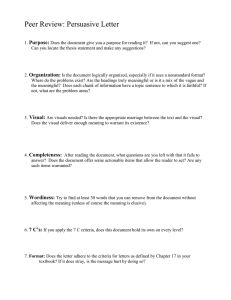No statement which refers to a “reality” transcending the limits... possible sense-experience can possibly have any literal significance;
advertisement
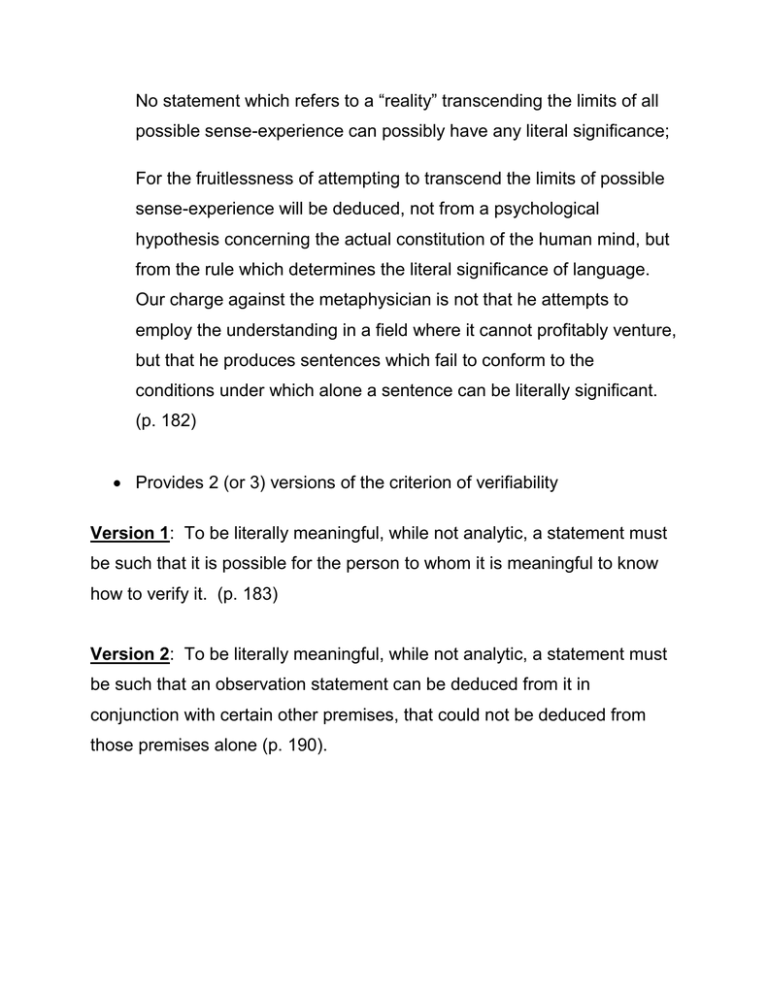
No statement which refers to a “reality” transcending the limits of all possible sense-experience can possibly have any literal significance; For the fruitlessness of attempting to transcend the limits of possible sense-experience will be deduced, not from a psychological hypothesis concerning the actual constitution of the human mind, but from the rule which determines the literal significance of language. Our charge against the metaphysician is not that he attempts to employ the understanding in a field where it cannot profitably venture, but that he produces sentences which fail to conform to the conditions under which alone a sentence can be literally significant. (p. 182) Provides 2 (or 3) versions of the criterion of verifiability Version 1: To be literally meaningful, while not analytic, a statement must be such that it is possible for the person to whom it is meaningful to know how to verify it. (p. 183) Version 2: To be literally meaningful, while not analytic, a statement must be such that an observation statement can be deduced from it in conjunction with certain other premises, that could not be deduced from those premises alone (p. 190).
